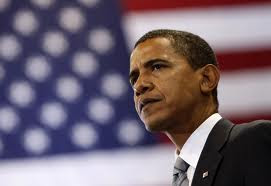For one thing, Congress as a whole must still vote to approve the agreement — and for another, the deal creates a new congressional committee to tackle the age-old debate over federal debt and spending.
The compromise preserves each side's bottom line – Obama's demand the $14.3 trillion debt ceiling be raised until after the 2012 elections and Republican insistence any deal rejects tax hikes.
The plan would cut federal spending by $1 trillion over the next decade.
Roughly $1.5 trillion in additional cuts would be the job of a new bipartisan "Super Committee" of Congress that will have to submit a blueprint by year's end.
Their recommendations must then be voted up or down without amendment or filibuster -similar to the process Congress uses to close military bases
Some members of the House Republican majority don't want the debt ceiling to rise; some Democratic liberals say the proposed cuts threaten essential programs — "a sugar-coated Satan sandwich," in the memorable words of Rep. Emanuel Cleaver, D-Mo.
Many of the toughest budget cuts have been handed to that special congressional committee, which must develop a plan to reduce the debt by $1.5 trillion over ten years, setting up a holiday version of the great tax-and-spending debate.
The committee, to consist of six Republicans and six Democrats, has been assigned to handle especially hot potatoes: Possible new tax revenues, which many Republicans oppose, and possible changes to entitlement programs like Social Security and Medicare, which Democrats oppose.
Congress would have to act on the committee's recommendations by Dec. 23, more holiday-time debate.
So no government default for now, but stay tuned just in time for christmas
